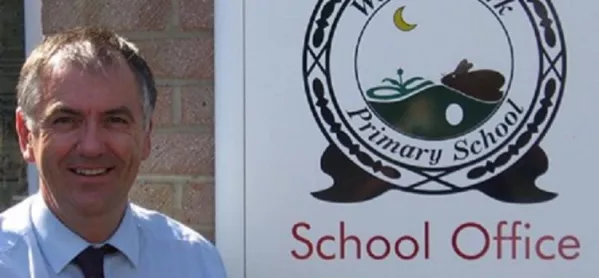The question that perpetually haunts teachers, headteachers and governing bodies in 2016 is this: “How can we truly provide a broad and balanced curriculum?”
Reviewing Ofsted documentation would leave you thinking its inspectors see this as one of the most important elements of an inspection. Is this the case, or are we deluding ourselves? Because the reality is that all a school is inspected on is data, data, data.
The last few years have seen a deluge of initiatives and curriculum changes, and a constant need to do more - and then some more again.
To accommodate these changes, and still fit in the stuff we consider to be important, in my school we have found ourselves continually manipulating the timetable.
We have desperately tried to fit in the new curriculum, the wellbeing elements, the new approach to PSHE, and also citizenship and work on radicalisation. Don’t forget the new emphasis on religious education, the two hours of physical education time and a positive approach to healthy eating.
With all these additions, are there any elements we can remove? Not really. Perhaps assemblies can be shortened, playtimes removed, days extended.
Or do we forget music, art, ICT or drama?
Schools are now judged on the narrowest parameters ever - Sats-driven - becoming truly “testing factories”.
Despite this, as a headteacher I have always fought to ensure a balanced curriculum is maintained. We have built a dedicated “outdoor classroom” which the children visit every two weeks for half a day. We also have a dedicated teacher responsible for PSHE across the school. However, do we really do enough art or music or drama? The answer has to be an emphatic “no”.
All schools, I know, have clear, well-developed plans. They use elaborate evaluation practices to establish where they are. They then develop improvement plans to ensure forward thinking enabling them to work as a team. Working in this collegiate approach undoubtedly leads to school improvement. Why is it beyond the realms of possibility that the Department for Education could follow a similar approach? It might even take to consulting us as professionals over the changes it has in mind. It does seem a logical request as it’s down to the schools to ensure appropriate and adequate delivery.
The common theme at the moment is that teachers feel under phenomenal pressure to deliver, and that their workload is too high. You could say that as a profession we don’t know what is going to happen from day to day. Each day, each week, each month there is another expectation placed upon us. While all the while spin doctors talk of how this new improved education system will answer all society’s ills and keep us on par with the rest of the world. There comes a point - and I feel we have reached it -where we say “stop”. We say to those in control that we can’t do any more. We are not a militant workforce, and we largely don’t go on strike.
No, what we are going to do is even worse; we will leave the profession. We will leave for jobs and people who appreciate us and the many skills we all possess.
Can you imagine the respect the teaching profession would give a government for acknowledging this state of affairs, a government that gave schools a “five-year plan” and a “10-year curriculum”, and then had the belief that the teachers could deliver it.
Perhaps this is too much to ask, but we can always hope.
Colin Harris is headteacher of Warren Park Primary School in Havant, Hampshire
Want to keep up with the latest education news and opinion? Follow TES on Twitter and like TES on Facebook




